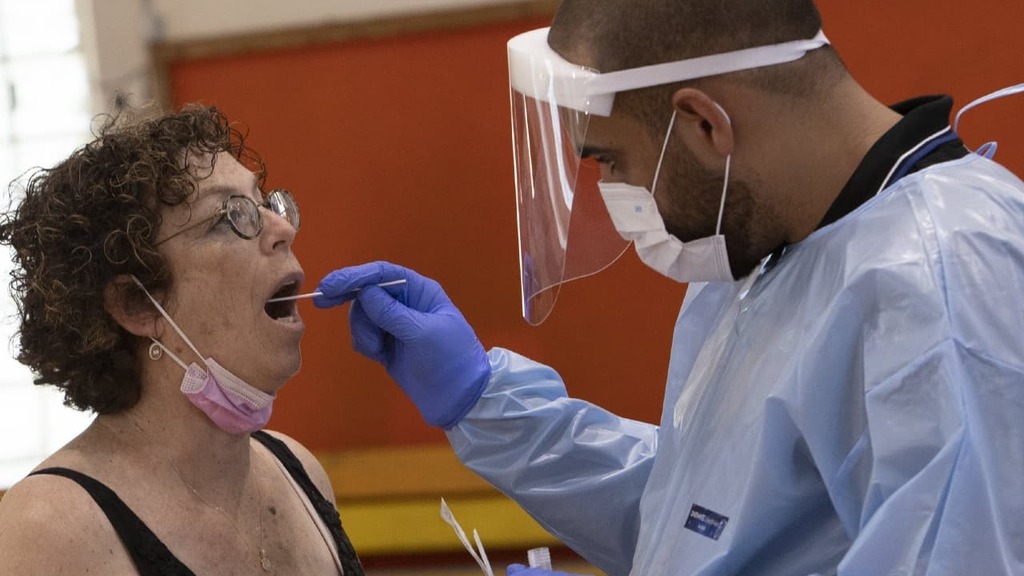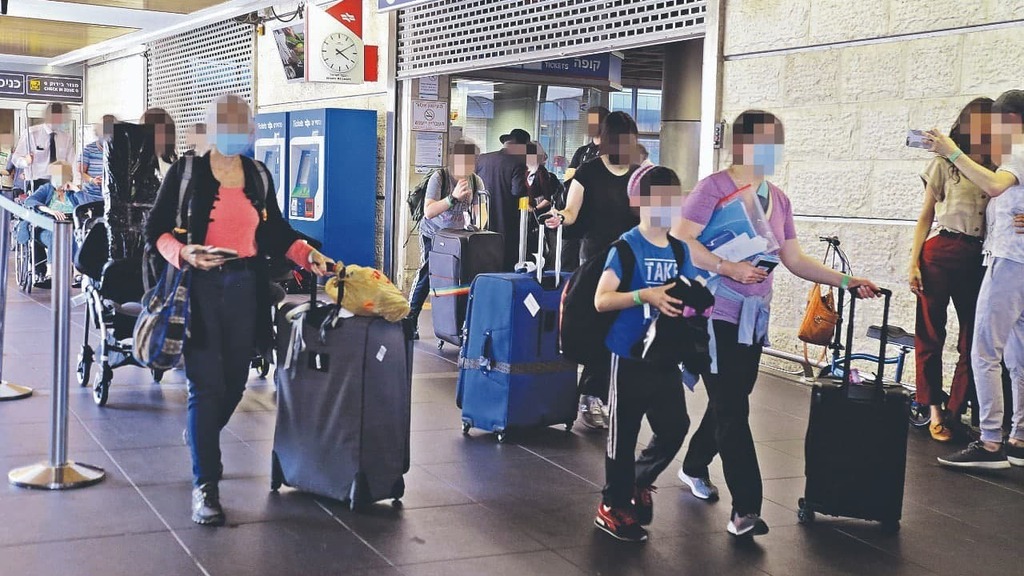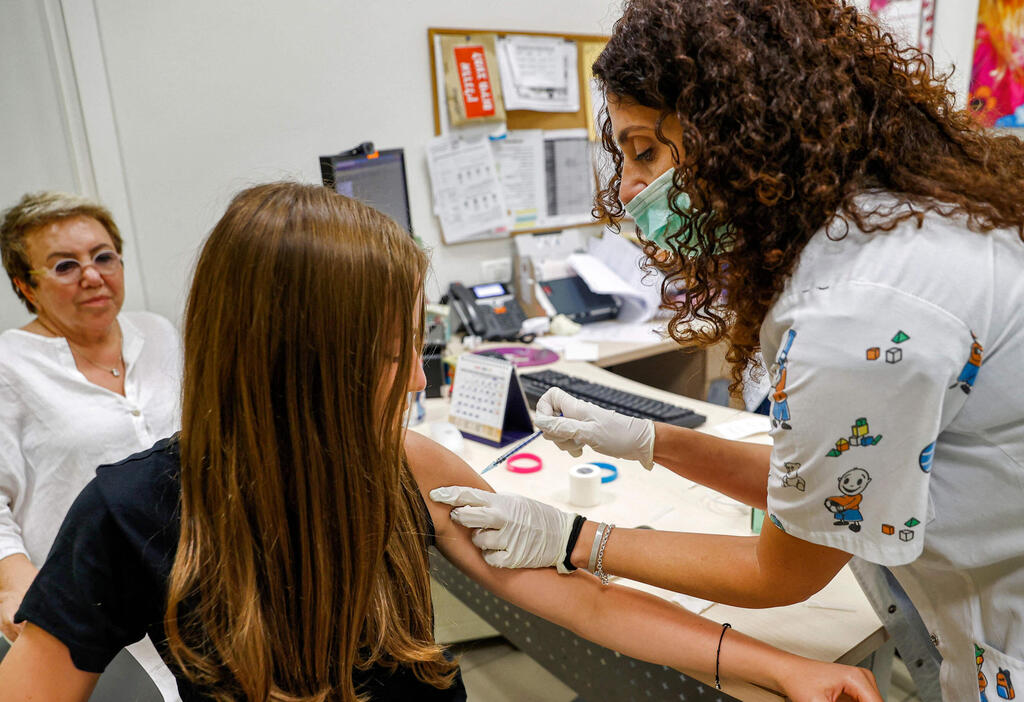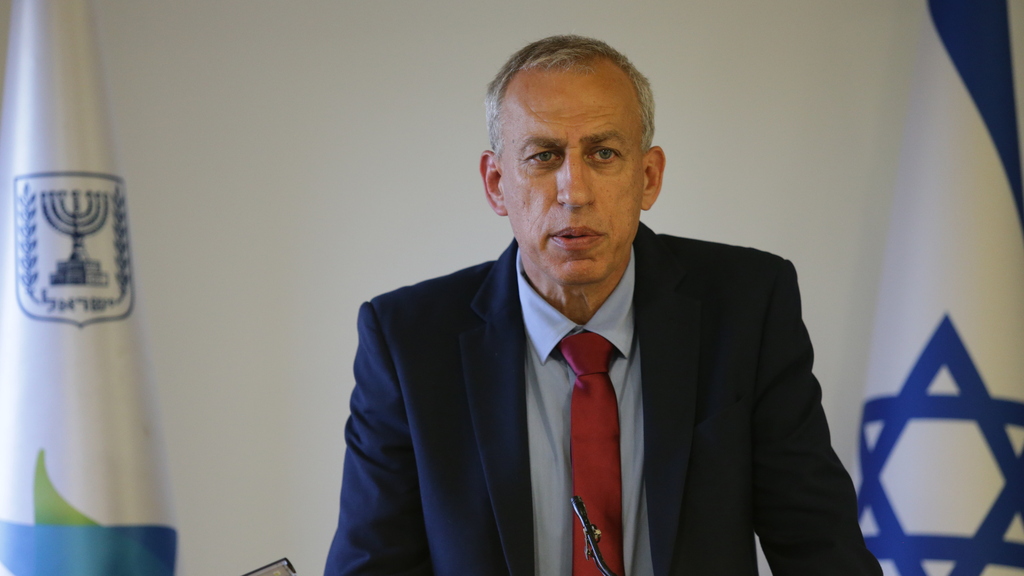Getting your Trinity Audio player ready...
The newly revived ministerial committee on the coronavirus was to meet Sunday to discuss possible measures to slow the spread of the virus as cases soared again in Israel.
The Health Ministry said Sunday that 113 people had tested positive for COVID-19 the day before, yielding a 0.4% positivity rate after 32,703 tests were carried out.
On Friday, the Health Ministry renewed a requirement for wearing masks in all indoor spaces apart from the home, as the number of new cases last week reached more than 200 per day.
As of Sunday morning, there were 1,175 active cases in Israel, compared to just 340 to at the same time last week.
The current spike in COVID cases is believed to have been caused by a breach at Ben-Gurion Airport on June 18, which saw thousands of Israelis return from abroad without undergoing any testing, and the consequent spread of the Delta variant around the country.
Despite the recent surge, only eight people have been hospitalized in serious condition over the past week, putting Israel’s number of COVID patients in serious condition at 26, of whom 17 are connected to ventilators.
Over the weekend, some 8,195 Israelis received the first shot of the COVID vaccine, most children aged 12 to 15. Israel’s vaccination drive has thus far inoculated over 5.5 million Israelis with the first vaccine dose, and over 5.1 million with both doses.
The ministry said that seven people have succumbed to COVID-19 since the beginning of June, bringing the country's death toll in the pandemic to 6,429.
Interior Minister Ayelet Shaked said Sunday that she planned to propose an amendment to the existing coronavirus law to punish anyone returning from abroad who violates their quarantine with a one-year ban on foreign travel. A NIS 5,000 fine has already been approved for such violations.
Shaked also proposed a one-year travel ban for Israelis who entered countries on the no-fly list due to high rates of contagion there.
If the new sanctions are okayed by the government, the Knesset would then have to approve them in a legislative process.
"This is a simple enforcement tool," Shaked said.
"It is most relevant during the summer holidays with families planning to travel and in some cases with unvaccinated children who could spread the virus to their friends," she said.
Israel's coronavirus czar Prof. Nachman Ash and representatives of the Health Ministry were also expected to present the coronavirus cabinet several options for dealing with the spread of the Delta strain.
The options that were to be presented included an appeal to the hundreds of thousands of Israelis who have not yet been vaccinated; reviving a mask mandate in open areas; reinstituting the "Green Pass" system for vaccinated people and those who have recovered from the virus; restrictions on social gatherings; and making COVID testing mandatory for unvaccinated individuals at the entrance to events.
The cabinet also recommended making free COVID tests widely available; enforcing tests for returnees from abroad; providing extra support in nursing homes and educational facilities; installing a monitoring system in the sewage systems; and preparing the health system for any hitherto unseen variants.





